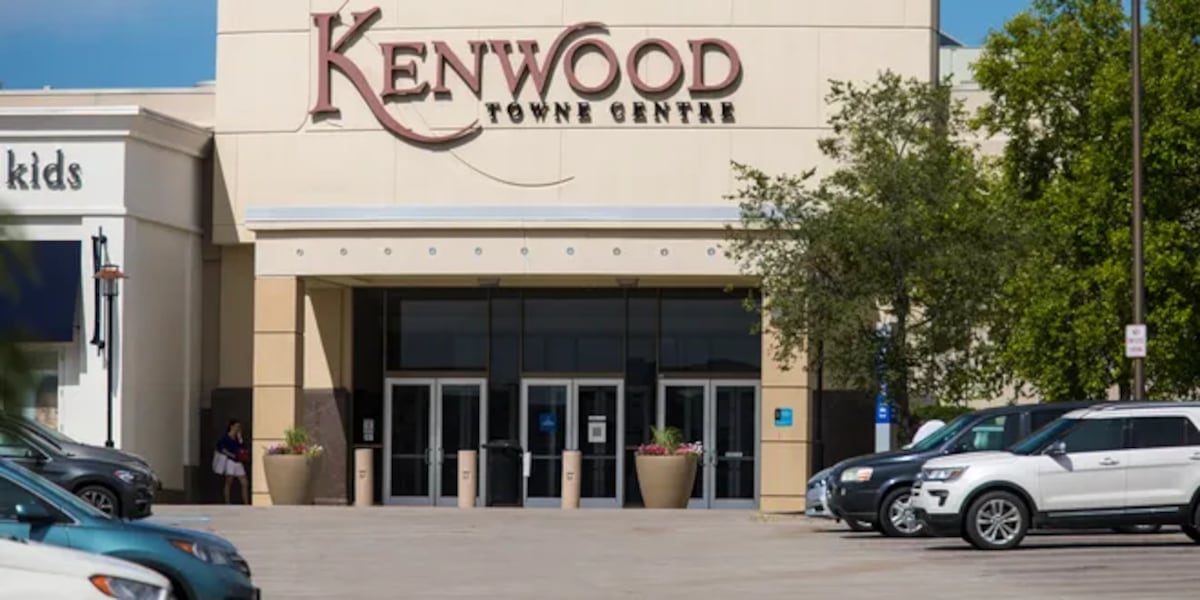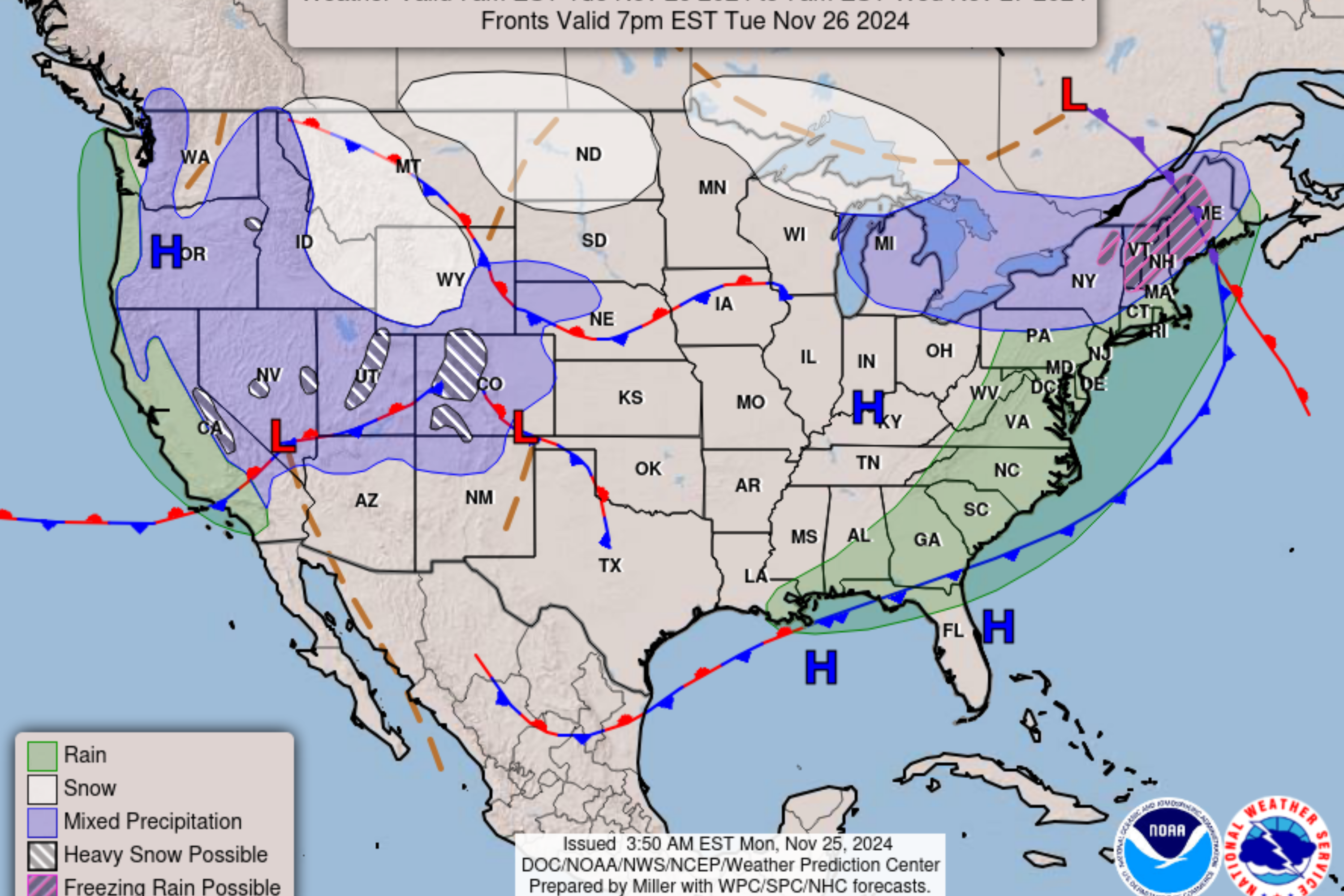Bussiness
Hurricane Helene flooded, destroyed Asheville NC businesses owned by 3 New Orleanians

While many residents of Louisiana, scarred by their own experiences with the devastation of major hurricanes, have been watching the stories of heartbreak coming out of Appalachia in the aftermath of Hurricane Helene, New Orleans businessman Jay Batt is among those dealing with the destruction firsthand.
Jay Batt pictured in Oct. 2021
Two shopping centers that Batt and several partners developed and own in the Historic Biltmore Village just south of Asheville, North Carolina, took in more than nine feet of water, when record rainfall pushed the Swannanoa River over its banks and into the streets of the quaint shopping district.
“Twice in one lifetime is a bit much,” said Batt, who was a New Orleans City Council member during Hurricane Katrina and had eight feet of water in his Lakewood South home back then. “I never dreamed it would happen again, especially in North Carolina. At least we know what to do.”
Batt isn’t the only south Louisiana resident dealing with the fallout from Helene’s aftermath nearly 700 miles to the north. A lot of locals have ties to North Carolina and eastern Tennessee, which has also dealt with the impacts of the storm. The Blue Ridge and Smokey Mountains are a popular vacation spot among Louisianians. Some have second homes nestled in the mountains. Others have businesses or relatives in the area.

A Lululemon store in the Historic Biltmore Village, owned by New Orleanian Jay Batt, which flooded during Hurricane Helene in late September 2024. (Photo courtesy Jay Batt)
“There are so many people from south Louisiana with ties to North Carolina,” said real estate broker William McIntyre, who relocated to North Carolina two years ago from his native New Orleans. “Anybody who lived through Katrina can really feel for what people here are going through.”
Rushing waters
The Appalachian region was hit particularly hard by the remnants of Helene, which crashed ashore along the Florida Gulf Coast on Thursday.
Though the storm diminished as it made its way north, it caused massive flash flooding across multiple states that were already saturated from a previous weather system. Roads and bridges were washed away, thousands were left stranded and cell service was knocked out.
The entire city of Asheville, a popular artsy enclave that has doubled in size over the past 30 years, had no potable water.
As of Tuesday afternoon, more than 1.5 million households throughout the region remained without power, according to poweroutage.us, adding to the challenges of cleaning up from the disaster.
New Orleanian Eric Revels was among those beginning to pick up the pieces. He fell in love with North Carolina attending summer camp there as a kid. Today, his company, Watershed, makes state-of-the art, waterproof bags for recreational users like kayakers and hikers, as well as for the U.S. military. The company’s 15,000-square-foot manufacturing facility, office and warehouse are about four miles north of Asheville in Woodfin, North Carolina. They took in four feet of water.

Floodwaters inside the Woodfin, North Carolina headquarters of Watershed, New Orleans entrepreneur Eric Revels’ company that makes waterproof bags.
On Tuesday, Revels, who lives in New Orleans, was in Woodfin, assessing the damage and beginning the cleanup.
“This isn’t like New Orleans floodwater that gradually rises,” he said. “It comes rushing in with so much force.”
Revels said the structural integrity of his building is sound and that some of his merchandise that had been stored high on shelves could be salvaged. But he said it was too soon to quantify the extent of the damage.
“We have a remediation company coming in but everything is still a mess,” he said. “Most of our employees are accounted for but a lot of people here are isolated and have no communications or running water.”
Revels is grateful he has flood insurance, a precaution he took after nearly flooding in 2004. Batt’s shopping centers, which total nearly 100,000 square feet and include tenants like Lululemon and Lilly Pulitzer, also have flood insurance.
Others are not so fortunate.
“I’ve heard estimates that only 10% of the homes and businesses have flood insurance here in North Carolina,” said McIntyre, citing real estate industry sources. “In Tennessee, it’s even lower than that.”
‘Popped off the foundation’
Restaurateur and former New Orleanian Peyton Barrell is one of those without flood insurance. He graduated with the inaugural class of the New Orleans Culinary and Hospitality Institute in 2019 and opened a small charcuterie business and pop up restaurant in New Orleans in 2020 called Gourmand.
But after the challenges of Hurricane Ida in 2021, Barrell and his wife decided to relocate to North Carolina. They opened a small tea shop and, last year, decided to go all in and open their own restaurant in Asheville’s trendy River Arts District.
After 14 months of construction, renovations of their small building on the banks of the French Broad River were nearly complete and the new Gourmand was set to open later this fall. Then, the remnants of Helene blew through and the waters of the French Broad rose.
“It just popped the building off its foundation and deposited it about 100 yards away,” Barrell said by phone Tuesday. “Fortunately, none of our appliances had been delivered yet.”
Like Batt and Revels, Barrell marvels at the irony of getting wiped out in the mountains of North Carolina, which, until last week, seemed like a relative safe haven from hurricanes, earthquakes, tornadoes and other destructive weather events.
“This is always where we would evacuate for hurricanes when I was a kid,” he said. “We’d come up here and play. For sure, we thought this place was safe.”
Barrell isn’t sure just yet how he’s going to recover or what he’s going to do next. Other locals are starting the process of rebuilding.
“Being from New Orleans, I know how to approach this,” Revels said. “You just start cleaning up and you work your butt off.”










